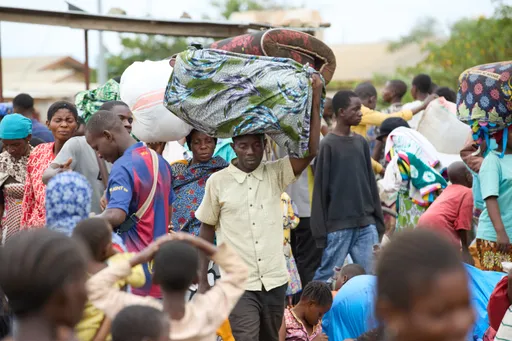By Coletta Wanjohi
The aftermath of the September 11, 2001 terror attacks by the Al Qaeda network didn't just shatter the myth of America's much-vaunted invincibility.
It reshaped global security, foreign policy, and public consciousness. It led to wars, heightened surveillance, and a lasting sense of vulnerability.
In Africa, 9/11 was that pivotal moment of introspection the continent needed to open a window to a future beset with security challenges.
Twenty-three years later, many African countries are living the nightmare. "The situation in Africa, especially in the Sahel region, is bad, with some terrorist groups stepping up their activities in the region.
Almost half of all deaths caused by terrorism occur in the Sahel region," UN deputy secretary general Amina Mohammed told a meeting of leaders in April.
Fighting terrorism entails more than just arranging resources and putting internal security systems in place. Navigating the matrix often requires extensive external, geopolitical support.
"Insurgency in the Sahel region is caused by organised crime, especially the proliferation of arms through smuggling. This is more pronounced in countries with porous borders. The availability of weapons increases the efficiency and effectiveness of terrorist groups," Mohammed said.
Somalia's tryst with terror
In Somalia, the Al Shabaab terrorist group, an affiliate of al-Qaeda, remains the primary obstacle to achieving peace, routinely carrying out attacks ever since President Hassan Sheikh Mohamud declared an "all-out war" on the outfit.
On August 3, at least 37 people were killed in a gun attack by terrorists on a popular beach in Mogadishu. Another eight people died, and several others were wounded in twin explosions in the capital city the same month, an official said.
On September 4, Mogadishu announced that at least 19 Al Shabaab terrorists had been killed in airstrikes by the Somali army in the Middle Shabelle and Galgadud regions.
A month earlier, Somalia's semi-autonomous state of Puntland executed 10 fighters from the terrorist group following their trial in a military court for assassinations and bombings in several locations.
Civilians are easy prey
Data from the African Centre for the Study and Research on Terrorism (ACSRT) shows that between January and December 2023, civilians were targeted in 1,597 of the 2,952 documented instances of terrorism on the continent.
Altogether, 1,218 attacks were directed at soldiers and defence installations, while 89 were carried out against international organisations and services.
The remaining 48 were against leaders, institutions and government infrastructure.
"In the Lake Chad Basin, ISWAP and Boko Haram are continuing their insurgency that mainly targets the north-eastern areas of Nigeria and the north of Cameroon.
The power struggle between these two main terrorist groups has become one of the events concerning the region," states a report by the continental think tank Amani Africa.
While African governments are individually committed to insulating citizens from terrorist attacks, they have struggled to put in place solid instruments and resources to combat such violence.
This underlines the importance of combined efforts to tackle the challenges of terrorism and other forms of violence affecting a country or region.
Continent's battle to fight The African Union Transition Mission in Somalia (ATMIS), a multidimensional initiative (military, police and civilian) mandated by the United Nations Security Council, is a prime example.
So was the adoption of the Organisation of African Union (OAU) Convention on the Prevention and Combating of Terrorism in 1999.
The convention, which came into force on December 6, 2002, requires the participating countries to criminalise acts of terrorism under their national laws, as defined in the charter.
The outlined areas of cooperation establish state jurisdiction over terrorist acts and provide a legal framework for extradition, extraterritorial investigation, and mutual legal assistance.
More agreements within African member states have been signed since 2004 to deal with terrorism. Safeguarding human rights People aren't the only casualties in terrorist acts and retaliatory responses by governments and agencies.
Human rights are often cast to the winds in such situations. The African Commission on Human and People's Rights was established as an organ of the OAU in 1987 and is responsible for ensuring the promotion and protection of human and people's rights throughout the African continent.
This is a quasi-judicial body. The African Court on Human and Peoples' Rights (ACTHPR), which came into force on January 25, 2004, paved the way for forming the African Court of Justice.
In 2008, the African Court of Justice and the ACTHPR merged into the African Court of Justice and Human Rights, with two separate chambers.
While both agencies continue to exist, there has been widespread criticism of their alleged failure to fulfil the mandate and punish those involved in acts of terrorism.
























